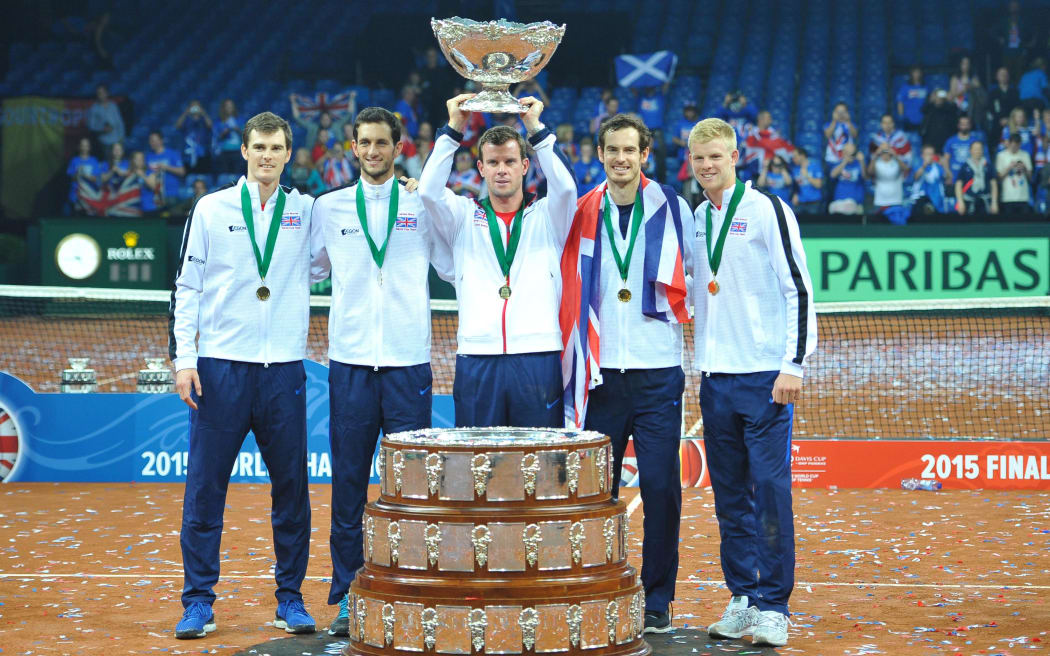Tennis New Zealand is supporting a proposed change in the format for the Davis Cup.

Davis Cup winners. Photo: PHOTOSPORT
Under the proposal by the International tennis Federation the 118 year old competition will be condensed from a year round competition to two weeks, one in February and the other, an 18 teams finals week in November.
It will have double the total prize money and matches in the world group will be shortened from best of five to best of three sets.
The new look Davis Cup has the backing of a three billion US dollar commitment over 25 years from investment group Kosmos.
The ITF needs a two third majority from its 210 member nations to implement its plans and the likes of Australia, Germany and Britain with 12 votes each have said they'll be voting no.
There are just over 460 votes in the electoral college system used by the ITF and New Zealand gets seven.
The ITF argues the Kosmos deal and format changes will stabilise the ITF economically and increase funding for grass roots tennis world wide with around $25 million USD pumped back into the sport annually for development.
Tennis NZ CEO Julie Paterson is in Orlando for the vote tomorrow and says the board voted last week for change.
"It's not just the dollars, to do nothing would mean the Davis Cup will go backwards, there has to be changes and the ITF present a very compelling case." Paterson said.
"From our perspective the investment that goes into the Davis Cup means a considerable amount of money would then flow back out to the nations."
"The biggest concern from some nations seems to be the reduction of the home and away ties. I actually like the idea of having a World Cup final which will appeal to a different audience and a broader audience as well." Paterson said.
The ITF has sought to compromise by holding a preliminary World Group round in February comprising 12 head-to-head matches hosted by national federations. The winners would advance to the finals along with the previous year's semi finalists and two wildcard nations selected by the ITF. The 18 teams would be split into three groups of six with the group winners and two runners up advancing to the knockout rounds.
There is no plan B and Paterson says they will have to go back to the drawing board and reconfigure things if the vote doesn't go through.
"The challenge around that is whether or not the commercial partner will still be there to be engaged in that process and I think that's the biggest risk if the vote doesn't go through, will the commercial partners they've brought on board consider a different format? " Paterson said.

